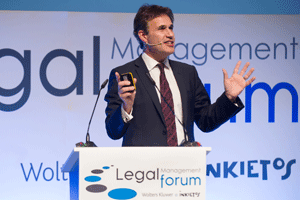
Accusing a company of bribery on social networks is not a crime
A ruling considers that the fact that an individual vents his anger with accusations on blogs, forums and social networks is not serious enough to be considered a crime of libel.
A ruling from the Provincial Court of Vizcaya has refused to condemn for libel a person who dedicated himself to spreading criticism and comments through blogs, forums and social networks aimed at discrediting an insurance company against which he had lost a lawsuit.
For the court, the conduct of the accused, who created up to three Internet domains in which he continuously made comments and photographic montages about the aforementioned company and its CEO, has no criminal relevance.
Specifically, according to the ruling, his criticisms and comments could be summarized in three blocks: he accused the company of failing to meet its obligations with its policyholders, he denounced irregularities and bad practices in its actions and, finally, what has been considered the The strongest accusation claimed that the company was involved in scandals related to cases of bribery and political corruption.
According to the ruling, with this, rather than an intention to undermine the prestige of the insurer, there is evidence of a relief in retaliation for the non-payment of compensation for an accident as a client of the company. Background The criminal court had acquitted the accused of the crime of slander, but had convicted him of insults towards the insurer as a legal entity, considering that the "profane and rude comments and photomontages" had injured the dignity of the company and of its representatives and employees, undermining its commercial and corporate reputation and attacking its honor and esteem in the market.
However, the provincial court disagrees and points out, among other things, that the fact that a person makes disqualifying comments online towards a company does not in any way affect the dignity of those who work there.
Furthermore, in the case of the photomontages, in which the CEO appeared, he points out that in any case it should have been the latter who filed a complaint, which did not happen.
It also discards the insults regarding the comments and criticisms that included terms such as bribery, manipulation, corruption, financial irregularities, dark businesses, greed or avarice, "all colloquial expressions," in the court's opinion.
According to the hearing, "the dissemination of particular opinions, criticisms, accusations and accusations of all kinds on Internet addresses, blogs, forums or profiles on social networks is absolutely common and frequent today."
He points out that "the simple fact that the prestige of a certain company or institution is attacked does not authorize talking about a crime against honor," to which he adds that "in this immense circulation of information and expression it is neither reasonable nor sensible to conclude in the capacity of the accused to inflict damage of that entity to the professional prestige of the insurance company. The court recalls that jurisprudential doctrine distinguishes between honor and personal dignity, which is predicated on natural persons, and professional prestige or commercial and corporate fame or market esteem, inherent to legal persons.
Although this type of crime has also been recognized when the victim is a company, the hearing warns that the law establishes that only expressions that "due to their nature, effects and circumstances are considered serious in the public concept" are the crime of libel. , a requirement that would not be met in this case.
www.expansion.com


